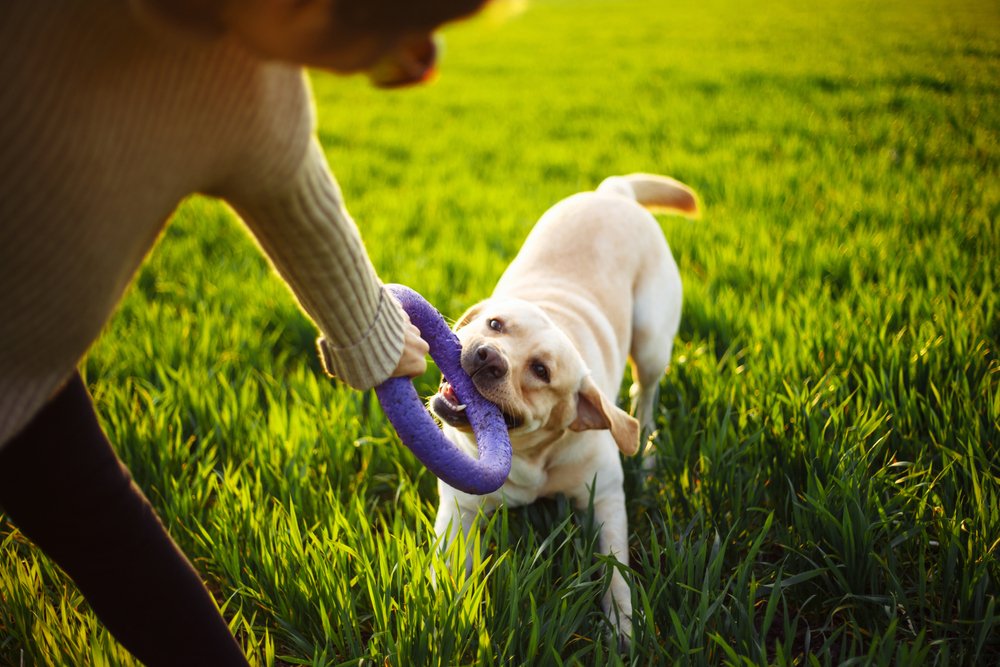Is your dog asking for butt scratches more than usual? Learn how to tell if your dog’s butt scratch request is a sign of a health problem and what to do about it.
If you have a dog, you probably know that they love to get butt scratches. But why do dogs like butt scratches so much? And can their butt scratch request be a sign of something more serious than just a simple itch?
In this blog post, we will explore the reasons behind your dog’s butt scratch behavior and how to spot some common health problems that may affect its rear end.
Why do dogs like butt scratches?
Dogs like having their butt scratched because it is an area with many sensitive nerve endings.
They also enjoy it because it’s a challenging spot for them to reach on their own. Scratching this area relieves any itchiness, removes dead hair, and boosts their feeling of well-being because of the physical contact with their humans.
Butt scratches are especially appreciated by dogs who have conditions that leave them with dry and itchy skin, such as parasites, allergies, skin infections, or hormonal or immune diseases.
These conditions can cause discomfort and inflammation in the skin around the anus, making your dog crave some relief.
How to tell if your dog’s butt scratch request is a sign of a health problem?
While most dogs enjoy occasional butt scratches, some dogs may ask for them more frequently or urgently than normal. This can be a sign that something is wrong with their anal region and that they need medical attention.
Some of the common health problems that can cause your dog to request more butt scratches are:
Anal sac disease
This is caused by clogging or infection of glands called anal sacs located on each side of the anus. It is the most common disease of the anal region in dogs. The anal sacs produce a foul-smelling liquid that is normally squeezed out during defecation.
When the sacs are clogged, infected, abscessed, or cancerous, they can cause pain, swelling, odor, and discharge in the area.
Perianal fistula
This is characterized by chronic, foul-smelling wounds in the tissues surrounding the anus. It is more common in German Shepherds and other breeds with short or docked tails. The exact cause is unknown, but it may be related to immune system dysfunction, infection, or inflammation.

Perianal tumor
This is a growth or mass that develops in or around the anus. It can be benign or malignant, and it can affect any breed or gender of dog. Perianal tumors can cause pain, bleeding, difficulty defecating, and changes in the appearance of the anus.
Perineal hernia
This is a condition where the muscles that support the rectum and anus weaken and allow abdominal organs to protrude through the pelvic floor. It is more common in older male dogs who have not been neutered. Perineal hernias can cause swelling, pain, constipation, and urinary problems.
Skin infection
This is an infection of the skin caused by bacteria, fungi, or parasites. It can affect any part of the body, including the anal region. Skin infections can cause itching, redness, rashes, hair loss, odor, and pus from the wound.
If you notice any of these signs in your dog’s anal region, you should take them to the vet as soon as possible for diagnosis and treatment. Some of these conditions can be serious and even life-threatening if left untreated.
How to prevent health problems from your dog’s butt scratch request?
The best way to prevent health problems from your dog’s butt scratch request is to keep their anal region clean and healthy. Here are some tips to help you do that:
- Check your dog’s anal region regularly for any signs of problems, such as poop or fur around the anus, rashes, hair loss, odor, or bald spots.
- Trim your dog’s fur around the anus if it is too long or matted.
- Express your dog’s anal sacs regularly if they are prone to clogging or infection. You can do this yourself or have a groomer or vet do it for you.
- Treat any parasites or allergies that may cause your dog to itch their butt.
- Feed your dog a high-quality diet that supports its skin health and immune system.
- Provide your dog with enough exercise and mental stimulation to reduce stress and boredom.
- Neuter your male dog to reduce the risk of perineal hernias and perianal tumors.

